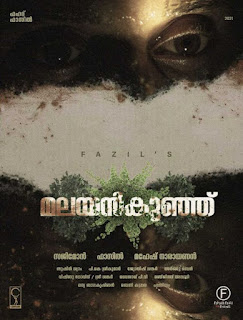When reduced to bare outline, Malayan Kunju (MK) is a simple story of redemption through trial. Of course, a simple story is by no means a bad thing. Some of the most entertaining films have two-line (or less) plots. Take Neil Marshall's survival thriller The Descent - A gaggle of spunky spelunkers brave a hitherto unmapped cave and must survive both perilous natural obstacles and an unexpected predator. The trick lies in being sincere to that premise and yet add sufficient layers to render it interesting for the running time.This reference to Marshall's film is not an idle one, since the thrills in MK bring to mind the claustrophobic sternum-squeezing atmosphere of the former.
The entire pre-interval portion of MK is used to define Anikuttan and his surroundings, and in a series of non-linear sequences, sketch out the tragedy that haunts his world-view. It is a large amount of build-up, even incorporating a couple of song numbers (AR Rahman), but the characterization is not rich enough to justify the time spent, and the significance of scenes like the boar hunt escaped me. A fair portion of the first half therefore comes across as the disjointed padding out of a leaner, more taut adventure, and the emotional angle is, like Rahman’s overbearing background score, on the nose without being memorable.
The best parts of the film occur once Faasil's character literally lands in the calamity that he must overcome to survive. Without spoiling too much, it is a gripping and visceral journey, masterfully captured by the production crew and performed by the actor with complete involvement. In comparison to the diffuse prologue, this part of the film held my attention so completely, it seemed to end too soon. How I wish more of MK could have been this one-man survival drama.




